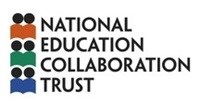The process, first conceived in a leadership dialogue late in 2012 and given substance in the first education dialogue in 2013, held its second education dialogue at the University of Johannesburg in June, which was attended by the minister and deputy minister of Basic Education, educationally focused NGOs, business leaders and teacher union leadership.

The discussion was around progress that had been made by the project's implementation arm, the National Education Collaboration Trust (NECT), in its first six months of operation - and, as importantly, included liberal discussion around its strategy going forward. As Deputy Minister Enver Surty stated, "[These dialogues] are to facilitate open and honest engagement among key stakeholders that will provoke insightful responses, creating an avenue for joint understanding of what we individually fail to think through, engaging South African society in a cycle of deep listening, reflection and speaking, compelling South Africans to adopt the future now - that is, generating familiarity with what the future should look like. None of us should say, 'It's not our responsibility; we are passive recipients in terms of ideas and visions and plans' - we should be active participants in this regard. We need to create a sustained hunger for change, and continuously stimulate open dialogues, but focused on actions."
In a process which a few short years ago might have seemed inconceivable, Angie Motshekga, Professor Ihron van Rensburg, and FirstRand CEO Sizwe Nxasana have rolled up their sleeves, along with prominent unionists and NGO leaders, with a common objective: to fast-track the repair of South Africa's ailing education system.
Today, almost all South African children have access to basic education - a vast improvement on the situation in 1994. However, the quality of that education often leaves a lot to be desired, which is why the National Development Plan (NDP) puts education front and centre. We have to increase the number of learners leaving school with university-entrance pass marks, paying particular attention to mathematics and science and to literacy levels.
One of the important agreements of the Education Collaboration Framework (ECF) is to hold regular dialogues between stakeholders, to ensure that while they all work towards the same goal, they can focus on their individual responsibilities and competencies, i.e. government in maintaining infrastructure and policy, while big business and NGOs provide innovation and acceleration through specific interventions.
The first leadership dialogue, in November 2012, established six themes for action:
This second dialogue took place in June 2014, and already had progress to report - showing the NECT's commitment to being more than a talk-shop.
As one of the driving forces behind the NECT, Sizwe Nxasana - CEO of FirstRand and, as deputy president of Business Leadership SA (BLSA), representing 85 of South Africa's top companies - said in his report at the second dialogue, "Straight after the NECT was created last year... we deliberately decided not to go out and create too much hype around what we planned to do, but rather to spend the time implementing the programmes on the ground, so that we can start communicating things that are not just plans, but things that have been implemented." He continued, "And what we have accomplished has been quite significant." Apart from intense engagement to bring various government, teacher unions, business bodies and NGOs on board, the project has focused on eight school districts, representing 18% of South Africa's schools. Each district has a District Steering Committee (DSC) to implement the NECT goals at district level and six of these districts have already begun interventions at their poorest-performing schools. Overall, the aim is to reduce the percentage of poorly performing schools from 37% to less than 10%, and increase the percentage of medium-performing schools from 43% to 60%, within ten years. Traditional leadership and religious bodies - both powerful forces when it comes to mobilising grass-roots buy-in and offering administrative capacity - are encouraged to participate in the DSCs and provide leadership in their implementation.

These diverse interventions emphasise the collaborative focus of the NECT: The Department of Labour has made certain labour centres available to produce desks; the Department of Transport and the Post Office were roped in on book delivery; the Department of Correctional Services provided prison labour to revamp schools; the Department of Defence is involved in building bridges and other infrastructure; while the Department of Rural Development has trained about 2,000 young unemployed graduates as school administrators. Both the unions and government agree: as Mr Mowena, from the National Professional Teachers Organisation SA said, "We appreciate that progress has been made in ensuring that indeed we move forward to improve the quality of education."
The purpose of the NECT is not to replace educationally engaged NGOs, but rather to enable them and to focus their activity - in fact, NGOs are crucial to the hands-on implementation of many of the NECT's interventions. Rather, the NECT aims to act as a catalyst - to co-ordinate the efforts of government, labour, business and civil society so that they will be most effective - and, of course, to see that the project is appropriately funded. Minister of Basic Education Angie Motshekga confirms, "The relationship we have with the NECT helps us, because it is now formalised through government, and it helps us to do some of the work through NGOs." Government has created tax incentives for business to participate in funding the NECT, and matches private sector donors rand for rand. It's an impressive and inspiring arrangement.
The NECT is a golden opportunity for private-sector funders to make a significant investment in their countries and thereby their own futures - a future of good governance, functional schools, educational excellence and a more skilled labour force. The NECT allows committed South Africans in all spheres the chance not just to criticise government and teacher unions for their perceived failures, but to get actively involved in a partnership with them that will create positive, permanent, sustainable change in our education system.